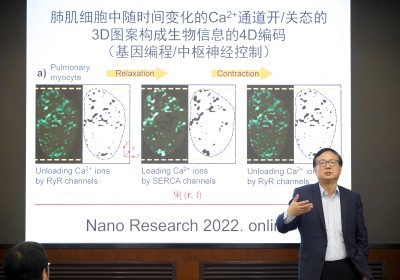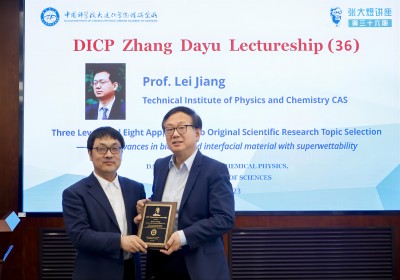

Lei Jiang
Lei jiang is a Professor at the Technical Institute of Physics and Chemistry, Chinese Academy of Sciences. He graduated from the Department of Physics of Jilin University with a bachelor's degree in solid physics in 1987. In 1990, he received a master's degree in physical chemistry from the Department of Chemistry of Jilin University. From 1992 to 1994, he studied in Tokyo University of Japan as a doctoral student jointly trained by China and Japan, and returned to China to obtain his doctoral degree. From 1994 to 1996, he worked as a post-doctoral fellow in Tokyo University. From 1996 to 1999, he was a senior researcher in the Kanagawa Academy of Science and Technology. In 1998, he was selected into the "Hundred Talents Program" of the Chinese Academy of Sciences. From 1999 to 2015, he was a professor at the Institute of Chemistry, Chinese Academy of Sciences. In 2015, he and his group moved to the TIPC. From 2008 to 2019, he was also the dean of the school of chemistry of Beihang University. In 2009, he was elected as an academician of the Chinese Academy of Sciences. In 2012, he was elected as an academician of the Third World Academy of Sciences. In 2016, he was elected as a foreign academician of the American Academy of Engineering. In 2022, he was elected as a foreign academician of the Australian Academy of Science.
Prof. Lei Jiang has discovered and established the basic principle of the interfacial material systems with superwettability and extended them to successful innovative applications. So far, he has published more than 800 SCI papers, with >174,000 citations and an H-index of 196 (From Google Scholar). Due to his contribution to the development of superwettability, he won the “TWAS Prize in Chemistry” in 2011, the Advanced Science and Technology Award of “THE HO LEUNG HO LEE FUNDATION” in 2013 and the “Outstanding Achievement Award” of the Chinese Academy of Sciences in 2014. As the first awardee in mainland China, he acquired the “MRS Mid-Career Researcher Award” in 2014. In 2016, he won the “UNESCO Medals” for contributions to the development of nanoscience and nanotechnologies, and the “Nikkei Asia Prize”. In 2017, he won the “Humboldt Research Award” in Germany. In 2018, he was awarded the “Qiu Shi Outstanding Scientist Award” and “Nano Research Award”. In 2020, he won the “ACS Nano Lectureship Award”. In 2022, he won Tan Kah Kee Science Award.
